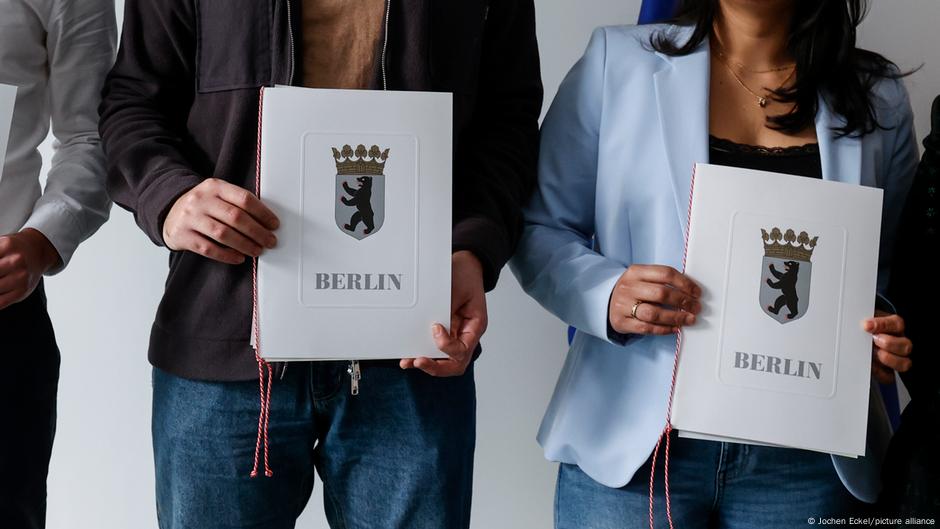The Bundestag voted on Wednesday to get rid of a fast-track citizenship law put in place under the previous government led by center-left Social Democrat (SPD) Olaf Scholz.
The vote passed with ease, because the proposal is one of very few from the coalition government to meet the approval of the anti-immigration , the largest opposition party.
In total, 450 members of the lower house of parliament voted in favor, 134 opposed, and two abstained.
Current Chancellor made it a cornerstone of to get rid of several of his predecessor’s liberalized citizenship laws.
Once his center-right Christian Democrats (CDU) had agreed to a coalition agreement with the SPD, however, only was left on the chopping block — with both the CDU and SPD able to agree to this change.
“A German passport should be the end of the integration process, not the beginning,” the CDU wrote in its election policy program, despite the law requiring immigrants to prove they are “exceptionally well integrated” before receiving fast-track citizenship.
What did the citizenship law entail?
For decades, Germany lagged behind several other European countries by only allowing dual citizenship to people who were already citizens of an EU member state, or in very specific cases for migrants from outside the EU without automatic residency rights.
In July 2024, the coalition led by the SPD, and which included the Green party and the neoliberal Free Democrats (FDP), introduced two new paths to citizenship, including allowing immigrants to hold onto their first passport.
The first law cut the waiting time to apply for citizenship from eight years to five years of residency in Germany, called for a certificate showing the applicant had mid-level German comprehension, and asked for proof of adequate income to support oneself and one’s family.
The fast-track option allowed applicants to wait three years if they could show advanced German comprehension and other proof of being well-integrated into German society. This was the law that the Bundestag nixed on Wednesday.
While there is not yet an exact number of people who gained German citizenship under the fast-track path, public broadcaster ARD said that immigration offices reported an extremely low number of applicants.
What have critics said?
Opposition politicians and immigration researchers have said the change will suggest to that Germany will not welcome them at a time when the country is suffering from .
Green Party chairman Felix Banaszak told news site Web.de that the reversal “is the wrong signal at a time when we need all our strength — regardless of whether someone has been living here for three years or three generations.”
Edited by Sean Sinico
The post German parliament votes to get rid of fast-track citizenship appeared first on Deutsche Welle.




